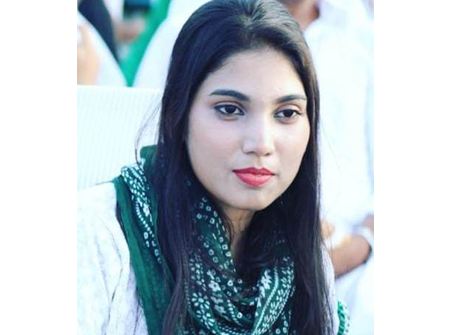Seerat Fatima
Burundi is formally known as the Republic of Burundi. It is a landlocked country, almost entirely surrounded by land, with no direct access to the sea. Located in the Great Rift Valley, it serves as a linkage between the African Great Lakes region and East Africa. Burundi shares its border with Rwanda to the north, Tanzania to the east and southeast, and the Democratic Republic of Congo to the west. Lake Tanganyika runs along its southwestern border.The capital city of Burundi was Bujumbura until it was moved to Gitega in 2019. Bujumbura is the largest city in Burundi and is renowned for its beauty due to its location on Lake Tanganyika. Gitega is the second-largest city and is home to the Burundi National Museum, which adds to its allure by showcasing the culture and history of Burundi. Dancing and drumming are integral parts of the people’s entertainment and signify the culture of Burundi. Grilled meat and fish are popular components of their cuisine.
Burundi has a population of over 11 million, making it one of the countries with the lowest population in the world. It is noteworthy that the majority of Burundi’s population is under 25, indicating a high youth population rate. Population growth is increasing rapidly, posing a significant challenge in terms of providing adequate education, food, and shelter. Women in Burundi tend to have more children compared to other countries, with various cultural practices such as early marriage and a preference for large families contributing to this trend. Illiteracy, lack of education, and limited family planning services also play a role.There are three main ethnic groups in Burundi: Hutu, comprising 85% of the population; Tutsi, making up about 14%; and Twa, constituting only 1% of the population. These ethnic groups have distinct cultures, traditions, languages, and behaviors, regardless of their biological identities. Hutus are primarily involved in farming and agriculture, while Tutsis are engaged in cattle herding. Twa people live as a minority in Burundi and face challenges related to unequal rights in society.The official languages of Burundi are Kirundi and French, with Swahili also spoken widely. Unlike some other African countries, Burundi’s ethnic groups are less diverse, with Hutus and Tutsis forming the majority of the population and sharing language homogeneity. Kirundi, one of the official languages, serves as a common means of communication between these two groups.
Christianity is the most followed religion in Burundi, with approximately 93% of the population adhering to it. Roman Catholicism accounts for 63% of Christians, while Protestantism represents 25%. Other religions are also followed by a minority of people in Burundi, with about 4.5% practicing indigenous beliefs and 2.1% following Islam.Burundi was an independent kingdom before the 20th century. After World War I, Germany was defeated, and subsequently, both Belgians and Germans ruled over Burundi and Rwanda. Burundi gained independence in 1962, but it experienced assassinations, coups, regional instability, and a devastating civil war that claimed thousands of lives.Ethnic tensions between Hutus and Tutsis have been a recurring issue in Burundi’s history. In 1965, a coup attempt in Burundi was driven by these ethnic tensions. In 1972, Hutu militants attacked Tutsis with the intention of causing harm. From 1993 to 2005, Burundi endured a civil war in which Tutsis suffered significant casualties. The ongoing Somali civil war, which began in 2007, also contributes to ethnic tensions. Ethnic differences have been exacerbated by the historical favoritism shown to Tutsis during Belgian rule. Competition for limited economic resources has further strained relations among ethnic groups, and the presence of refugees in Burundi has added to ethnic tensions.
The persistent and ongoing civil wars in Burundi have been a major cause of political instability. These conflicts have resulted in significant loss of life, negatively impacting the economy and political stability. Many people have been forced to seek refuge in neighboring countries due to the severe conflicts. The instability within the country has hindered development efforts, causing a depletion of the economy and reduced investment due to an unstable government. Weak leadership has further contributed to an unstable political environment and poor governance. In times of war, the country’s priorities shift away from education, healthcare, and infrastructure toward maintaining an unstable structure. The psychological impact on the population is also profound. To address ethnic tensions, actions are needed at both the national and international levels. Dialogues should be encouraged with ethnic groups, political leaders, and civil society organizations. Ethnic-based violence has significantly affected basic human rights in Burundi, and steps should be taken to strengthen the rule of law to combat cruelty and injustice. A just society can be established where everyone is treated equally regardless of their caste, creed, or religious beliefs. No one is above the law, and accountability is essential for developing a stable political system and governance. In the long run, education and awareness are crucial for resolving these tensions. Establishing an equitable system and promoting awareness of its importance can lead to lasting peace in the country. History has shown that systems of equality and justice are the foundation for prosperity, while injustice deprives ordinary people of their rights, which is unacceptable.
Burundi’s economy is heavily reliant on agriculture, with approximately 90% of its economic production coming from this sector. Farming holds paramount importance in Burundi, as many people rely on crop cultivation to feed their families. The country’s major export is coffee, which is abundantly produced there. Additionally, tea is a significant export commodity. Maize is another staple crop in Burundi, playing a vital role in reducing food insecurity in the country. Maize is a drought-resistant crop that can thrive in varying climatic conditions and improve soil fertility. Due to its high production, many people in Burundi meet their needs by selling maize. Similarly, sorghum and beans are also sold on a large scale in Burundi, serving as a crucial source of income for its impoverished population. However, Burundi’s agricultural production faces serious challenges due to its underdeveloped status, lacking the machinery required for enhanced production. Consequently, agriculture primarily relies on basic tools, resulting in limited output. The absence of high-quality insecticides and fertilizers further hinders crop quality and protection from pests.
Burundi experiences varying climatic changes based on altitude. In the western part of the country, where mountains are located, heavy rainfall occurs almost year-round, and temperatures remain relatively high due to the altitude. In contrast, the Rift Valley, with its lower altitude, receives minimal rainfall throughout the year and experiences high temperatures and humidity. Overall, Burundi has two main rainy seasons: one from February to May and a shorter one from September to November. Unfortunately, these rainfalls can damage crops and harm agricultural production.
The educational system in Burundi is on the brink of collapse, with one of the lowest literacy rates in the world. During the Burundian civil war, 25% of schools were destroyed, and many teachers were killed. Although education for six years is compulsory, almost half a million children lack access to education and does not attend school. Political instability has not only impacted the system externally but has also resulted in a shortage of qualified teachers, leading to a significant decline in the quality of education. In a country where the majority of the population consists of youth, such a failing education system poses a severe obstacle to development and prosperity, contributing to high youth unemployment.Transportation is challenging in Burundi due to poorly constructed roads. In rural areas, many people have to travel long distances on foot, while bicycles are commonly used for transportation within cities and towns. Buses and minibuses are used in major cities for convenience. Motorcycles, commonly known as “boda-bodas,” are occasionally used for urban transportation. However, they are rare in Burundi. Improving road infrastructure and transportation options is essential for the country’s economic growth.The healthcare system in Burundi is underdeveloped, with the majority of hospitals, both public and private, concentrated in the capital, Bujumbura, and urban areas. Some small healthcare facilities exist in rural areas to provide basic medical treatment, but access to quality healthcare remains a concern. Limited education also contributes to the shortage of qualified medical professionals. As a result, diseases such as malaria, tuberculosis, HIV/AIDS, and malnutrition are widespread. Hypertension and diabetes are common among the Burundian population and maternal and child health is at risk. It is crucial for organizations and NGOs to play a significant role in providing healthcare facilities to ensure the well-being of the population.
Corruption is a major issue in Burundi and ranks among the top 25 most corrupt countries globally. Corruption erodes public trust in the government and discourages foreign investors, leading to slower economic growth. Establishing a strong judicial system is essential to combat corruption effectively.
Burundians face numerous challenges in their daily lives, making it difficult for them to experience happiness. According to the Global Happiness Index 2020, Burundi scored only 3.78, reflecting the harsh realities of a country where many struggle to secure a single meal. Additionally, the legacy of war has instilled fear in the population. However, it is essential for Burundians to look for solutions to their problems to secure a better future for their generations.Ethnic tensions, poor infrastructure, low income levels, and limited agricultural production all contribute to the destruction of Burundi’s economy. These factors have led to Burundi being labeled as one of the world’s poorest countries.
Seerat Fatima
Student of BS Human Nutrition and Dietetics
University of Okara

















